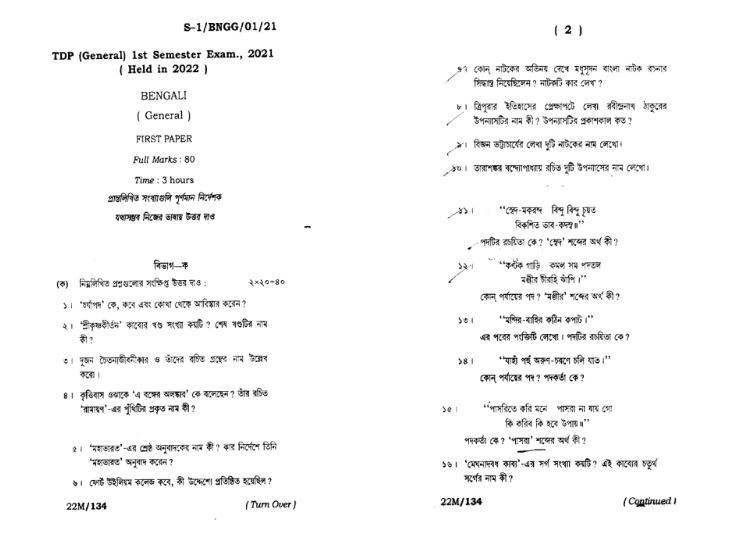2018 PDF Tripura University Question Paper: You may effectively study for your Tripura University exam by using our website, which offers a large collection of Tripura University previous papers. Get access to a wide range of previously administered test questions that have been thoughtfully selected to address topics associated with the Tripura University course. To help you study and boost your confidence, download sample tests in a variety of forms, including multiple-choice questions (MCQs) and descriptive questions.

Table of Contents
Download 2018 Tripura University Question Paper in PDF all Course
Tripura University Question Paper 2018 PDF Exam Pattern
Tripura University Examination Patterns
For Courses Without Practical Components:
| Component | Description |
|---|---|
| Total Marks | 100 |
| Internal Assessment | 20 marks |
| Multiple Choice Questions (MCQs) | 40 marks (1 mark each; 4 options per question) |
| Broad/Descriptive Questions | 40 marks |
| Unit Questions | Two questions worth 10 marks each from each of the four units. Answer one question from each unit. |
| Question Parts | 10-mark questions may be split into 2 or 3 sections, with a maximum of 5 marks per section. |
For Distance Education Courses:
| Component | Description |
|---|---|
| MCQs | Includes multiple choice, matching, assertion and reasoning, and true/false questions. |
| Broad Questions | Eight broad questions (two from each unit). Answer four questions, each worth 10 marks. |
| Answer Script | Responses must fit within the designated space and adhere to the word limit. |
For English Courses:
| Component | Description |
|---|---|
| Sessional Examination | Contributes 40% to the internal assessment marks (includes written questions, seminars, or group discussions). |
| End Semester Exams | Total Marks: 80 |
| MCQs | 40 marks |
| Broad/Descriptive Questions | 40 marks |
Importance of the 2018 Tripura University Question Paper in PDF Format
Significance of Tripura University Question Paper 2018 PDF
| Section | Details |
|---|---|
| Introduction | The Tripura University Question Paper 2018 PDF is an essential academic resource for students and educators associated with Tripura University. This document provides a comprehensive record of the examination questions posed in 2018, and its significance extends beyond mere archival value. |
| Historical Context | Academic Relevance:
|
| Practical Benefits for Students | Preparation Tool:
|
| Academic and Research Value | Educational Research:
|
| Pedagogical Insights | Teaching Strategies:
|
| Preservation and Accessibility | Archival Importance:
|
Advantages of Using Question Papers from Prior Years
Benefits of Using Previous Year Question Papers
| Section | Details |
|---|---|
| Introduction | Using previous year question papers is a well-established study technique that offers numerous advantages to students preparing for exams. These papers, which include past questions from various exams, serve as a valuable resource for understanding and mastering the exam format, content, and question styles. |
| 1. Understanding Exam Format and Structure | Familiarization with Format:
|
| 2. Identifying Key Topics and Patterns | Focus on Important Topics:
|
| 3. Enhancing Exam Preparation | Practice and Review:
|
| 4. Boosting Confidence and Reducing Anxiety | Confidence Building:
|
| 5. Improving Exam Strategy | Strategic Planning:
|
| 6. Understanding Evaluation Criteria | Insight into Marking Schemes:
|
| 7. Supporting Revision and Study Plans | Targeted Revision:
|
